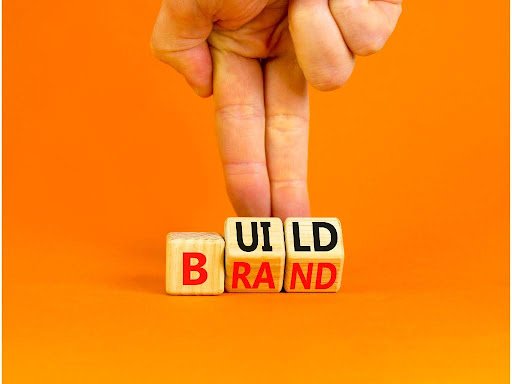Building a strong personal brand is no longer optional for start-up founders in today’s competitive business environment. Personal branding goes beyond just promoting your company—it’s about establishing yourself as a thought leader, gaining trust, and creating a positive image that can help your business thrive. In this blog, we’ll explore why personal branding is crucial for start-up founders and share effective personal branding for startup founders.
What is Personal Branding?
Personal branding is the process of marketing yourself and your career as a brand. It involves creating a consistent image and reputation that reflects your expertise, values, and personality. Your personal brand is how the world perceives you, and it can greatly impact your business’s success. In today’s digital age, personal branding has become more crucial than ever, especially for entrepreneurs and professionals who want to stand out in a crowded market. By building a strong personal brand, you can establish yourself as an authority in your field, attract more opportunities, and build trust with your audience.
Personal branding goes beyond just your professional achievements; it includes your communication style, social media presence, and the values you project. When done correctly, it allows you to create a lasting impression that distinguishes you from competitors. It’s not just about self-promotion; it’s about showcasing your unique story, expertise, and what you bring to the table. In a world where people often do business with those they know, like, and trust, having a well-crafted personal brand can significantly enhance your networking potential and professional credibility. Personal branding is an ongoing process that evolves with your career, requiring regular updates and strategic thinking to remain relevant and impactful in your industry.
Benefits of Personal Branding for Start-Up Founders
1. Builds Trust and Authority
In the start-up world, trust is everything. A strong personal brand can position you as an authority in your industry, making it easier for people to trust your business. When you consistently share valuable insights and show expertise, potential customers and investors see you as a reliable source.

2. Enhances Networking
Networking is key for start-up founders. Personal branding can help you connect with industry leaders, investors, and customers. A well-crafted personal brand often results in invitations to speak at conferences, participate in panels, and collaborate on projects, which can benefit your start-up.
3. Attracts Talent and Investors
Founders with strong personal brands often find attracting top talent and investors easier. People want to work for and invest in leaders who have a clear vision and a reputable personal image. Your brand can make your start-up more appealing to those looking for the next big thing.
4. Positions You as a Leader and Influencer
A strong personal brand establishes you as a thought leader in your industry, showcasing your expertise and vision. By sharing insights and experiences, you build credibility and gain recognition as someone driving change. This influence extends to inspiring your internal team and fostering trust, loyalty, and motivation to align with your vision.
Additionally, being recognized as an industry influencer amplifies your voice in key discussions and trends. It attracts top talent, strategic partnerships, and valuable opportunities for collaboration, directly contributing to your start-up’s growth. A strong personal brand reflects confidence and commitment, positioning you as a leader capable of creating a lasting impact.
Strategies for Personal Branding for Startup Founders
1. Define Your Brand Identity
Start by identifying your unique qualities, values, and what sets you apart from others. Ask yourself:
- What are my strengths?
- What do I want to be known for?
- How do I want people to perceive me?
Your brand identity should align with your business’s mission and values.
2. Leverage Social Media
Social media is a powerful tool for personal branding for Start-Up Founders. Choose platforms where your target audience is active and start sharing content that showcases your expertise. Whether it’s LinkedIn, Twitter, or Instagram, consistency is key.
- Share industry news and trends.
- Post your thoughts and insights.
- Engage with your audience by responding to comments and messages.
3. Content Creation
Creating valuable content is one of the best ways to build your brand. Start a blog, write articles, or create videos that address the pain points of your audience. This will position you as a thought leader and keep your audience coming back for more.
4. Public Speaking and Events
Participating in industry events, webinars, and podcasts can greatly enhance your brand. Speaking engagements allow you to share your knowledge and connect with a broader audience.
Building an Authentic Personal Brand Using the Design Thinking Approach
The design thinking approach—characterized by empathy, ideation, and iteration—offers a creative and user-focused framework to help individuals develop a brand that genuinely resonates with their audience. Let’s explore how design thinking can be applied to key aspects of personal branding: defining brand identity, leveraging social media, creating content, and public speaking.

Defining the Brand Identity
Design thinking starts with empathy, which is the cornerstone of defining your personal brand identity. By understanding the needs, preferences, and challenges of your target audience, you can craft a brand that speaks directly to them. Begin by:
- Empathizing: Conduct interviews, surveys, or informal conversations to understand what your audience values and expects from someone in your field.
- Defining Your Vision: Reflect on your values, strengths, and passions to articulate what sets you apart. Use this insight to create a clear value proposition.
- Prototyping Your Identity: Experiment with different ways to express your brand, such as logo designs, taglines, or personal mottos. Gather feedback to refine these elements until they align with your authentic self and resonate with your audience.
Leveraging Social Media
Social media platforms are invaluable for building and showcasing your personal brand, and design thinking ensures your strategy is both intentional and adaptive. Here’s how:
- Empathizing: Identify the social platforms where your audience is most active. Research their habits and preferences to tailor your content accordingly.
- Ideating: Brainstorm creative ways to share your story, such as video snippets, behind-the-scenes posts, or Q&A sessions.
- Testing and Iterating: Use analytics to monitor engagement rates, likes, shares, and comments. Refine your approach based on what’s working and adapt to your audience’s evolving needs.
Creating Content
Your content is the voice of your personal brand. By applying the design thinking process, you can create materials that are engaging, impactful, and relevant.
- Empathizing: Understand the pain points and aspirations of your audience. What questions are they asking? What problems are they trying to solve?
- Ideating: Generate ideas for blog posts, podcasts, videos, or infographics that address these needs. Aim to educate, inspire, or entertain.
- Prototyping and Testing: Create pilot content pieces and gather feedback through comments, likes, or surveys. Use the insights to refine your tone, style, and format.
Public Speaking
Public speaking is a powerful tool for establishing credibility and connecting with your audience on a deeper level. The iterative nature of design thinking can enhance your skills and confidence.
- Empathizing: Research your audience’s interests and expectations for your talk. What challenges do they face that your expertise can address?
- Prototyping: Develop an outline for your presentation and practice delivering it to a small group. Record yourself to identify areas for improvement.
- Testing and Iterating: After each speaking engagement, gather feedback from attendees and reflect on your performance. Use this feedback to fine-tune your delivery, storytelling, and engagement techniques.
Final Thoughts
Personal branding is not a one-time effort but an ongoing process. By implementing the right personal branding strategies for startup founders, you can create a powerful image that not only supports your business but also helps it grow. Start by defining your brand, creating valuable content, and engaging with your audience. Remember, authenticity and consistency are key to a successful personal brand.
Whether you’re at the beginning of your entrepreneurial journey or looking to take your start-up to the next level, investing in your personal brand is a step towards long-term success.
ARE YOU A START-UP FOUNDER LOOKING TO GROW YOUR PERSONAL BRAND?
BOOK A FREE DISCOVERY CALL NOW
About the author
 A Haryanvi by origin, an entrepreneur at heart, and a consultant by choice, that’s how Ajay likes to introduce himself! Ajay is the Founding Partner at Humane Design and Innovation Consulting (HDI). Before embarking on HDI, Ajay established the Design Thinking and Innovation practice at KPMG India, laying the foundation for his later venture. His 16+ years of professional career spans various roles in product and service design, conducting strategy workshops, storytelling, and enabling an innovation culture. He has coached 50+ organizations and 2000+ professionals in institutionalizing design and innovation practices. He loves to blog and speak on topics related to Design Thinking, Innovation, Creativity, Storytelling, Customer Experience, and Entrepreneurship. Ajay is passionate about learning, writing poems, and visualizing future trends!
A Haryanvi by origin, an entrepreneur at heart, and a consultant by choice, that’s how Ajay likes to introduce himself! Ajay is the Founding Partner at Humane Design and Innovation Consulting (HDI). Before embarking on HDI, Ajay established the Design Thinking and Innovation practice at KPMG India, laying the foundation for his later venture. His 16+ years of professional career spans various roles in product and service design, conducting strategy workshops, storytelling, and enabling an innovation culture. He has coached 50+ organizations and 2000+ professionals in institutionalizing design and innovation practices. He loves to blog and speak on topics related to Design Thinking, Innovation, Creativity, Storytelling, Customer Experience, and Entrepreneurship. Ajay is passionate about learning, writing poems, and visualizing future trends!



